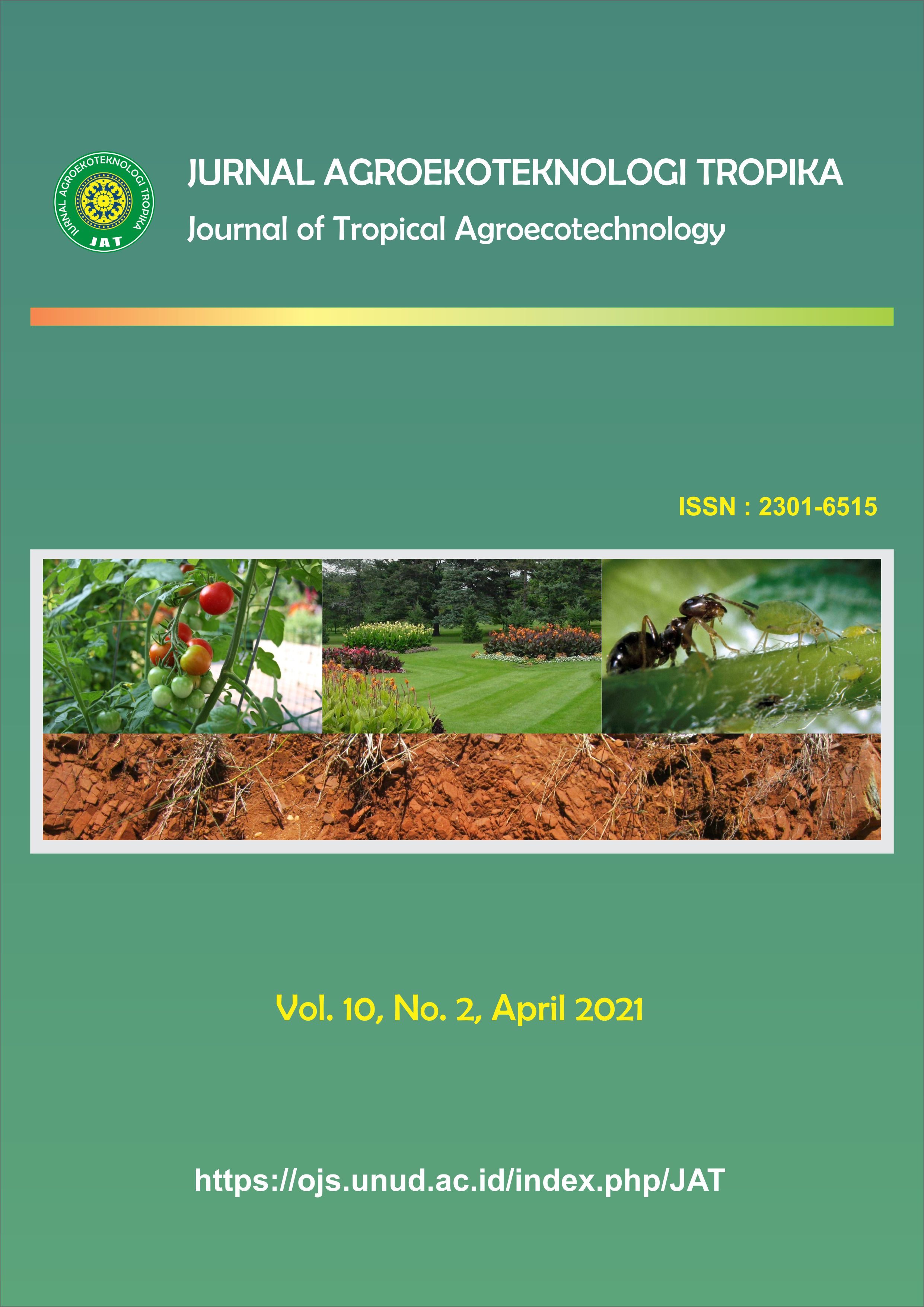Aktivitas In Vitro Anti Jamur Ekstrak Bulung Sangu Gracilaria sp. terhadap Jamur Patogen Fusarium solani (Mart) Sacc. Cabai Rawit
Abstract
Antifungal Activity of Gracilaria sp. against Pathogenic Fungi Fusarium solani (Mart) Sacc. Cayenne pepper
The use of chemical pesticides as a control for cayenne pepper fusarium wilt caused by the Fusarium solani continuously for a long time can have a negative impact on the ecosystem, and toxic for humans. Seaweed Gracilaria sp. as a marine commodity that is abundant in Indonesia, especially in the Bali region, it contains bioactive compounds that have the potential to be developed as an antifungal. This study was aimed to determine the effectiveness of Gracilaria sp. in inhibiting the growth of Fusarium solani (Mart) Sacc. This research was a single factor experiment which was compiled based on a completely randomized design (CRD) consisting of six treatments of the concentration of Gracilaria sp. and each treatment was repeated 3 times. The treatment was given various concentrations of Gracilaria sp. in the fungus F. solani, the concentration is 0%; 0.5%; 1%; 1.5%; 2%; and 2.5%. Treatment was positive control (ketoconazole) and negative control (Tween 80). The results of this study indicate that the extract of Gracilaria sp. has antifungal activity that is fungistatic with weak inhibition against the fungus F. solani. MIC test results show that the minimum extract that can inhibit the growth of Fusarium solani is a concentration of 0.5%. MIC test results show that the minimum extract that can inhibit the growth of F. solani is concentration of 0.5% with an average diameter of 4 mm with a weak category. The highest inhibition power of Gracilaria sp. to F. solani in this study was 2.5% with inhibition of colony growth of 79.3%. The percentage of spore growth inhibition was 67.49%. The concentrations studied showed that the higher the extract concentration, the greater the inhibition power of Gracilaria sp. against F. solani.



